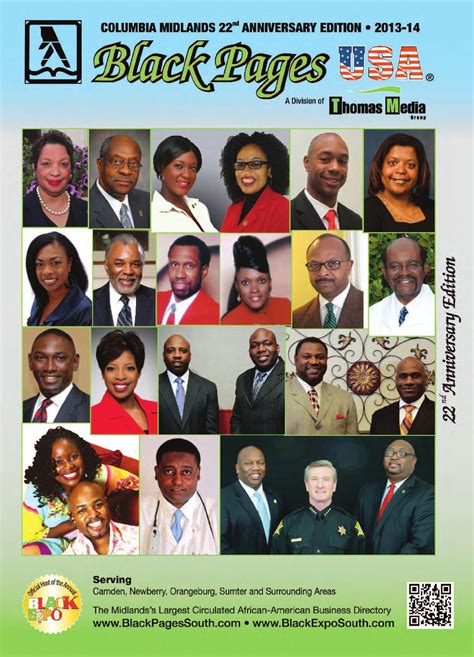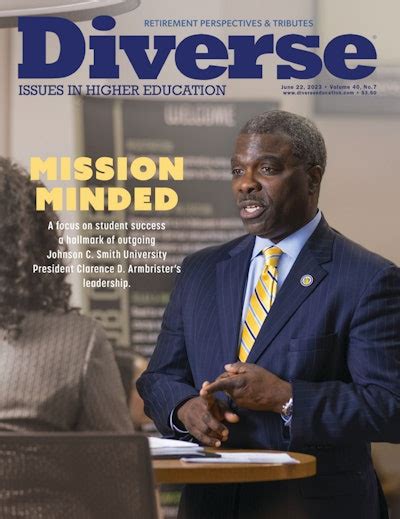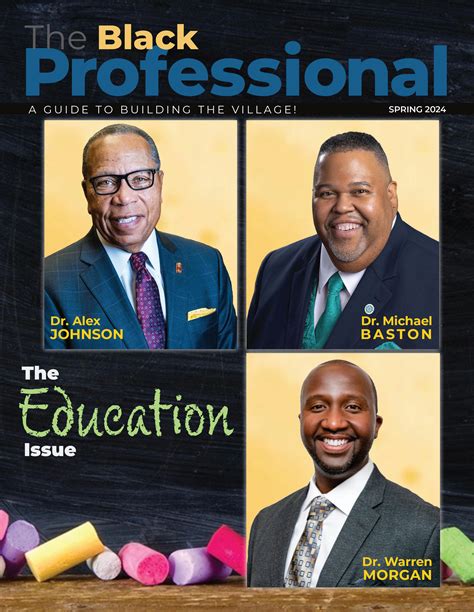Mary McLeod Bethune was a trailblazing educator, civil rights leader, and advocate for lifelong learning whose legacy continues to inspire generations. Born to parents who were formerly enslaved, Bethune rose to prominence through her unwavering commitment to education and her belief in its transformative power. As the founder of the Daytona Educational and Industrial School for Negro Girls and a key figure in numerous national organizations, Bethune’s work paved the way for countless individuals to pursue personal and professional growth. In this article, we explore 15 inspiring lessons from Mary McLeod Bethune that offer invaluable insights for lifelong learners and professionals today.
Explore this topic in-depth with gameshoek.com
1. Mary McLeod Bethune’s Early Life and the Foundations of Her Educational Philosophy
Mary McLeod Bethune was born on July 10, 1875, in Mayesville, South Carolina, to parents who had been enslaved. As the fifteenth of seventeen children, she grew up in a modest household where the value of hard work and perseverance was emphasized. Despite limited opportunities for African Americans, Bethune’s passion for learning was ignited early on when a missionary taught her to read and write. This newfound literacy opened her eyes to the possibilities that education could bring, not only for herself but for her entire community.
Bethune’s educational philosophy was rooted in the belief that education was a path to liberation and self-empowerment. She championed the idea that learning should be accessible to all, regardless of race, gender, or socioeconomic status. Her early experiences with education and her determination to uplift her community became the bedrock of her lifelong commitment to teaching and advocacy for educational equality.

2. Establishing the Daytona Educational and Industrial School for Negro Girls
In 1904, with just $1.50 in savings, Mary McLeod Bethune founded the Daytona Educational and Industrial School for Negro Girls in Daytona Beach, Florida. Bethune’s vision was to create a school that would provide African American girls with an education that was both academic and practical, equipping them with skills needed for self-sufficiency and personal growth. Starting with only five students and a rented house, Bethune built the school through her relentless fundraising efforts, resourcefulness, and unwavering belief in the power of education to change lives.
Bethune’s curriculum was designed to address the needs of her students, blending academic subjects with vocational training in fields like sewing, cooking, and agriculture. She saw education as a means to foster independence and self-respect, and she emphasized character development, leadership, and community service as integral components of her program.
The school quickly grew, gaining the support of philanthropists, civic leaders, and the local community. In 1923, it merged with the Cookman Institute of Jacksonville, Florida, to become Bethune-Cookman College. This institution became a beacon of hope, promoting Bethune’s lifelong commitment to accessible education and professional development for African Americans.

3. Bethune’s Role in the Advancement of African American Women in Education
Mary McLeod Bethune was a pivotal figure in advancing education for African American women, breaking barriers and setting new standards for what could be achieved in a segregated society. Through her work at the Daytona Educational and Industrial School for Negro Girls, Bethune provided young women with opportunities that were otherwise unavailable to them, focusing on developing both their intellectual and vocational skills. She championed the idea that education was not just for personal improvement but also a tool for uplifting entire communities.
Bethune’s influence extended beyond her school. She was actively involved in numerous organizations that promoted the education and empowerment of African American women, including the National Association of Colored Women (NACW), where she served as president. In this role, Bethune used her leadership to advocate for broader access to education and to challenge discriminatory practices that limited the potential of African American women.
Bethune also founded the National Council of Negro Women (NCNW) in 1935, an organization dedicated to advancing the rights and opportunities of African American women. Through her advocacy, Bethune not only advanced the cause of education but also inspired countless women to pursue their dreams and contribute meaningfully to society.

4. Leadership and Advocacy in the National Association of Colored Women
Mary McLeod Bethune’s leadership and advocacy in the National Association of Colored Women (NACW) marked a significant chapter in her mission to uplift African American women through education and social reform. Joining the NACW in the early 1900s, Bethune quickly rose through the ranks due to her dynamic leadership skills and her steadfast dedication to the organization’s goals. In 1924, she was elected president of the NACW, becoming a powerful voice in the fight against racial and gender discrimination.
During her presidency, Bethune focused on expanding the organization’s reach and influence, emphasizing education, economic empowerment, and social justice. She spearheaded initiatives that provided scholarships, established daycare centers, and created programs that offered vocational training for African American women. Bethune was particularly committed to combating the negative stereotypes and systemic barriers that African American women faced, using her platform to advocate for equal rights and opportunities in education and employment.
Bethune also worked to enhance the NACW’s national visibility and impact, helping to unify and strengthen local chapters across the country. Her efforts included lobbying for anti-lynching laws and other civil rights protections, as well as fostering alliances with other women’s organizations. Through her leadership in the NACW, Bethune not only advanced the cause of African American women but also laid the groundwork for future civil rights movements, reinforcing her legacy as a champion of equality and justice.
5. Bethune’s Influence on Federal Policies through the National Youth Administration
Mary McLeod Bethune’s influence on federal policies was most notably demonstrated through her role in the National Youth Administration (NYA), a New Deal agency focused on providing work and education opportunities for young Americans during the Great Depression. In 1936, Bethune was appointed as the Director of the Division of Negro Affairs for the NYA, making her the highest-ranking African American woman in the federal government at the time.
Bethune used this platform to advocate for African American youth, ensuring they had access to the NYA’s educational and employment programs. She worked tirelessly to secure funding for African American schools, colleges, and training programs, emphasizing the importance of education and vocational skills for economic empowerment. Bethune’s efforts helped increase the participation of African American youth in NYA programs, significantly impacting their professional development and future prospects.
Her work in the NYA not only influenced federal policies but also highlighted the need for greater inclusion and representation of African Americans in government initiatives, setting a precedent for future advocacy and reforms.
6. The Importance of Community Building in Bethune’s Vision for Lifelong Learning
Community building was central to Mary McLeod Bethune’s vision for lifelong learning, as she believed that education should extend beyond the classroom and into the heart of the community. Bethune understood that empowering individuals through education was not just about academic achievement, but also about creating supportive networks that could foster collective growth and resilience. This philosophy was evident in her approach to the Daytona Educational and Industrial School for Negro Girls, where she integrated community service, leadership development, and civic engagement into the curriculum.
Bethune saw education as a means to build a sense of purpose and responsibility among her students, encouraging them to contribute positively to their communities. She fostered a strong sense of unity and cooperation, often rallying community members, parents, and local businesses to support her educational initiatives. Through her leadership in organizations like the NACW and the NCNW, Bethune further emphasized the role of community in achieving social change and advancement.
By creating spaces where African Americans could gather, learn, and support each other, Bethune’s community-building efforts helped to cultivate a sense of belonging and collective agency. Her approach reinforced the idea that lifelong learning is not just an individual journey, but a shared commitment to uplifting entire communities.
7. How Bethune Used Education as a Tool for Social Change
Mary McLeod Bethune harnessed the power of education as a transformative tool for social change, viewing it as a means to address systemic inequalities and uplift marginalized communities. She believed that education was essential for breaking the cycle of poverty and oppression that affected African Americans, particularly women and girls. Through her establishment of the Daytona Educational and Industrial School for Negro Girls, Bethune provided African American youth with access to quality education and vocational training, equipping them with the skills needed to overcome societal barriers and achieve economic independence.
Bethune’s educational approach extended beyond traditional academics. She integrated life skills, leadership training, and civic responsibility into her curriculum, aiming to foster a sense of agency and social responsibility among her students. Her involvement with the National Youth Administration allowed her to influence federal policies, ensuring that African American youth received opportunities for advancement and employment.
Bethune’s efforts to promote educational access and equality were instrumental in challenging racial and gender discrimination. By using education as a lever for social change, she not only improved individual lives but also contributed to the broader movement for civil rights and social justice, leaving a lasting legacy of empowerment and progress.
8. Bethune’s Strategies for Overcoming Obstacles and Persisting in Lifelong Learning
Mary McLeod Bethune’s strategies for overcoming obstacles and persisting in lifelong learning were deeply rooted in her resilience, resourcefulness, and unwavering commitment to her mission. One of her key strategies was her ability to turn challenges into opportunities for growth. Faced with financial constraints and societal prejudices, Bethune relied on her ingenuity and tenacity to secure funding and support for her educational initiatives. Her ability to network and build relationships with philanthropists, civic leaders, and community members was crucial in overcoming financial hurdles and expanding her programs.
Bethune also emphasized the importance of adaptability and continuous learning. She remained open to new ideas and approaches, integrating practical skills and vocational training into her educational philosophy to meet the evolving needs of her students. Her focus on personal and professional development extended to herself; she continuously sought new knowledge and experiences to enhance her leadership and advocacy.
Moreover, Bethune’s strong sense of purpose and faith in the transformative power of education drove her perseverance. She instilled in her students the same determination and resilience, teaching them to navigate and overcome their own challenges. By embodying these principles, Bethune not only advanced her own goals but also inspired others to persist in their lifelong learning journeys.
9. Her Legacy and Influence on Modern Adult Education and Professional Development
Mary McLeod Bethune’s legacy profoundly impacts modern adult education and professional development. Her pioneering work laid a foundation for inclusive education, emphasizing the importance of providing equal opportunities for all, regardless of race or gender. Bethune’s approach to education—integrating academic learning with vocational training and personal development—continues to influence contemporary educational practices.
Her commitment to lifelong learning and community building resonates in today’s emphasis on holistic education and professional growth. Bethune’s strategies for overcoming obstacles and her advocacy for educational access have inspired numerous programs and initiatives aimed at empowering marginalized groups. Her belief in the transformative power of education and her efforts to create supportive networks have shaped current models of adult education, which prioritize continuous learning and career advancement. Bethune’s legacy serves as a powerful reminder of the impact that dedicated educators can have on both individual lives and broader societal progress.
10. Key Takeaways from Bethune’s Life for Today’s Lifelong Learners and Educators
Mary McLeod Bethune’s life offers several key takeaways for today’s lifelong learners and educators. Firstly, her belief in the transformative power of education underscores the importance of providing equitable learning opportunities for all. Bethune’s work reminds us that education should be inclusive and accessible, aiming to empower individuals regardless of their background.
Secondly, Bethune’s integration of academic learning with practical skills highlights the value of a holistic educational approach. Modern educators can draw inspiration from her emphasis on vocational training and personal development, ensuring that students are prepared for both professional and personal success.
Bethune’s resilience and resourcefulness in overcoming obstacles teach valuable lessons about perseverance. Her ability to navigate challenges and turn them into opportunities serves as a model for lifelong learners facing their own difficulties.
Lastly, her commitment to community building illustrates the importance of creating supportive networks. By fostering a sense of belonging and cooperation, educators and learners alike can enhance their growth and impact. Bethune’s legacy encourages a collaborative and inclusive approach to education, reinforcing the idea that collective effort can drive significant change and advancement.
Mary McLeod Bethune’s pioneering work in education and advocacy continues to inspire and guide today’s learners and educators. Her commitment to inclusive, practical, and holistic education, coupled with her resilience and focus on community, provides enduring lessons on overcoming obstacles and fostering lifelong growth. Bethune’s legacy remains a powerful beacon for progress and empowerment.
gameshoek.com
